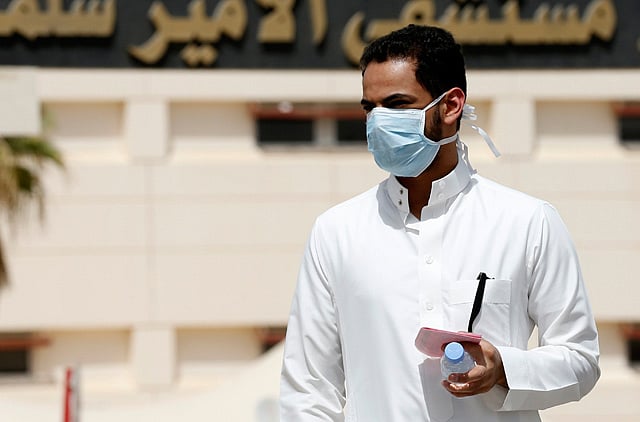The global community is coming to grips with what is now known as “long COVID”, presented as lingering symptoms post recovery from the Covid-19 virus. In recent months, many media outlets have shared tragic stories about people’s struggles with long COVID as they walk us through their prolonged battles with a number of unexplained health conditions following infection from the Covid-19 virus.
At present, the global research community is actively engaging in multifaceted research projects in order to understand long Covid, propelling the issue to global and national policy discussions. Shocking figures published by Penn State College of Medicine reveal that possibly over 100 million people around the world could be suffering from long Covid, since December 2019.
Such symptoms are expected to persist for up to six months after recovery from the Covid-19 virus. Symptoms recorded in the study include an attack on general well-being, manifesting in weight loss, fatigue, fever, or pain. Other symptoms include decreased mobility, reduced concentration, shortness of breath, chest pain, palpitations, muscle ache, stomach ache, vomiting, and lack of appetite.
Debilitating symptoms
With such an alarming rate of patients suffering from a number of debilitating symptoms, it is a challenge that has already started manifesting in devastating scenarios. As a result of their lack of economic self-sufficiency, isolation, and ongoing health challenges, many patients have struggled with increased anxiety, depression, suicide contemplation, or post-traumatic stress disorder.
To illustrate, many patients are too ill to resume full-time employment, leaving them in precarious circumstances and requiring them to seek welfare benefits and assistance from social and child care services to cope. Such huge losses in physical and mental health, in addition to economic productivity, can cause long-term damages on communities if no robust interventions are introduced urgently.
However, the challenge remains that health data analytics do not currently capture the severity of the situation when it comes to the plight of long Covid patients. A look at national data banks would reveal the common indicators pertaining to Covid-19, namely infection rates, death rates, the number of recovered cases, and the number of active cases — with no mention whatsoever on long Covid cases.
It is imperative that such relevant data is aggregated to national data banks in order to fully understand the situation, such as the number of patients, a comprehensive assessment on the common symptoms faced by patients, and the time period they are experiencing them for. Such information will give prominence to the need for policymakers to address rising needs for diagnosis and treatment plans to patients across different geographies.
Experimental treatments
Sufficient investment in world-class research and innovation in this area will shed light on effective assessments, high-risk groups, length of symptoms, and treatment plans for patients of long Covid. Piloting with a range of experimental treatments and case management plans would need to be instigated to reach an optimal set of long-term solutions for patients. The engagement of bright scientists, innovative medical equipment, and financial backing is vital to achieve these research targets.
A number of progressive governments have established dedicated multidisciplinary long Covid clinics to provide rehabilitation services aimed at mitigating the physical and mental health effects of long Covid, such as the ones found in the UAE, UK, US, Canada, and Finland. For example, the UAE’s world-class hospitals are now offering special post-Covid-19 screening packages to detect common symptoms facing patients and to manage symptoms accordingly. On the other hand, the UK has set-up 90 long Covid clinics to cater to the rising need for assessment and rehabilitation.
In another example, the Helsinki University Hospital has established a dedicated outpatient clinic to cater to long Covid patients. A preliminary assessment is conducted to evaluate the full symptoms. Interestingly, the HUH is also conducting a research study on long Covid and its effects on people’s ability to work, quality of life, sleep, and mood.
Patients are invited to join a cohort study, wherein information about their symptoms is collected during regular intervals. Subsequently, treatment includes a range of solutions, such as psychoeducation to manage symptoms, medication relieve symptoms, physiotherapy, self-care programs, group rehabilitation, and online therapy sessions for long-term adverse cases.
Managing care duties
Considering the extended length of recovery for patients with long Covid, it is vital that a variety of essential support services be provided to them. It is important that childcare or day care services are available for patients’ young children or elderly family members to assist with managing care duties.
At the same time, patients with debilitating health concerns or limitations should be able to avail social care services to assist them with managing their day-to-day responsibilities and running important errands.
Moreover, as recovery periods usually take months, some patients might suffer from current health conditions that prevent them from resuming full-time work. As such, it would be beneficial to dispense temporary financial assistance until a full recovery is made.
Employers should offer flexible working options whilst patients transition into recovery, which can be implemented in the form of reduced working hours, reduced workloads, longer breaks, or remote work. Offering regular well-being sessions and psychological support services can equip patients suffering from mental health challenges to find effective and practical ways of addressing any number of tumultuous challenges.
The plight of patients with long Covid is evident and pressing. Policymakers should urgently give prominence to this health concern and find viable solutions to end patients’ suffering.
Sara Al-Mulla is an Emirati civil servant with an interest in human development policy and literature
Sign up for the Daily Briefing
Get the latest news and updates straight to your inbox
Network Links
GN StoreDownload our app
© Al Nisr Publishing LLC 2026. All rights reserved.
